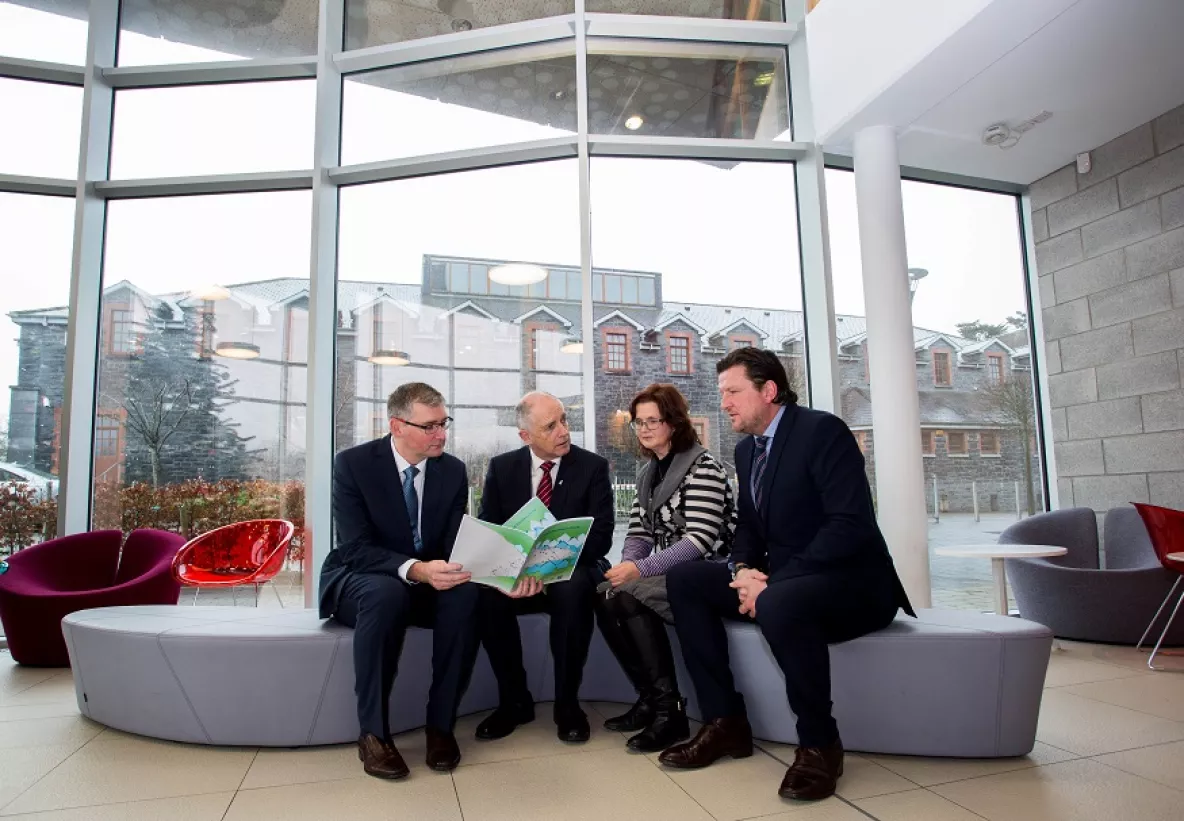
A University of Limerick study has established evidence that the deliberate involvement of children in criminal networks can be found throughout Ireland and extends beyond the ‘Greentown’ single area study.
The National Prevalence Study, launched by Minister of State David Stanton, TD has established that findings from the ‘Lifting a Lid on Greentown’ research based on an original single case study design, can be applied to the general Irish context. The study was undertaken by Dr Catherine Naughton and Dr Sean Redmond, from the UL School of Law.
The original Greentown study undertaken in 2015 focused on the activities of children involved in burglary, and drugs for sale and supply offences in ‘Greentown’, a real but anonymised locality in Ireland. The study found evidence that a number of children were heavily involved in a network that was dominated by the members of a core family group involved in organised and serious crime. The network in itself was found to have a significant influencing effect on the children identified, to commit abnormally high levels of crime.
“This follow up National Prevalence Study involving a survey of Garda Juvenile Liaison Officers across the country, has now given us clear evidence that the profiles of children involved in serious crime, identified in Greentown, are present far more widely. Importantly the problems highlighted in the Greentown report are not just confined to large urban areas. Children are being groomed into crime by predatory adults and, while relatively small in number, a pattern can been seen across the country,” said Dr Redmond.
The research which has been funded by the Department of Justice and Equality now informs an expert design team in developing a new intervention programme to help children escape the influence of criminal networks and engage in pro-social activities. Additionally Minister Stanton announced an allocation of €1.2 million secured by the Department of Children and Youth affairs for UL to test the new intervention programme in a local community in Ireland.
Commenting on the relationship with UL, Minister Stanton said: “UL is working closely with the Department of Justice and Equality to help reduce the incidences of children’s involvement in gang and organised crime networks in Ireland. We know that this problem affects only a minority of children involved in serious and prolific crime such as burglary and illicit drugs sales. However, we also know that many of these children can be trapped in coercive relationships with adult criminals. These children often find it very difficult, if not impossible, to break free from these coercive relationships.”
Dr Geoffrey Shannon, the Special Rapporteur on Child Protection, commenting on the developments in UL said ‘in my most recent report as Rapporteur on Child Protection I have made my concerns clear about the problem of children being groomed by adult criminals in Ireland. The work being carried out by the University of Limerick is at the cutting edge in terms of applying the scientific evidence to get to grips with this complex problem. As the Greentown report suggests we need to act simultaneously on targeting adult groomers for attention while at the same time providing safe and realistic options for children to escape these negative influences.’
The full National Prevalence Study Report can be accessed here.
The original study which highlighted the problem of children’s involvement in criminal networks in Ireland ‘Lifting the Lid on Greentown (2015)’ can be accessed here.